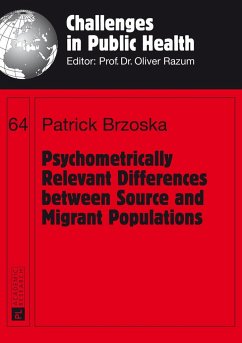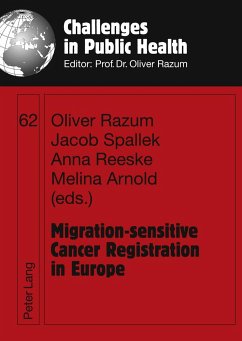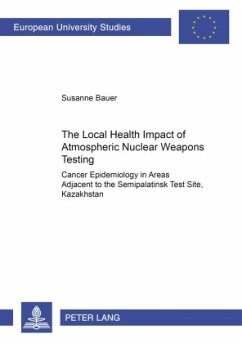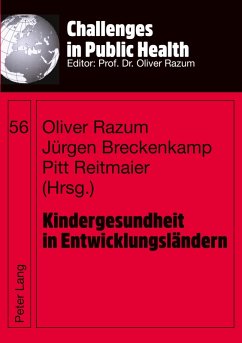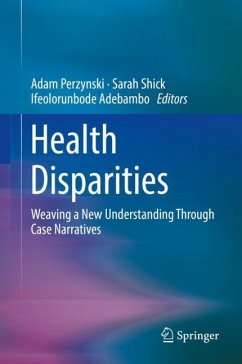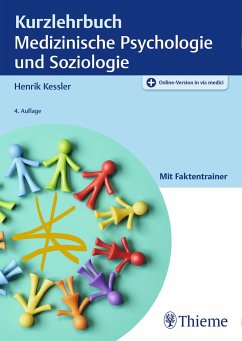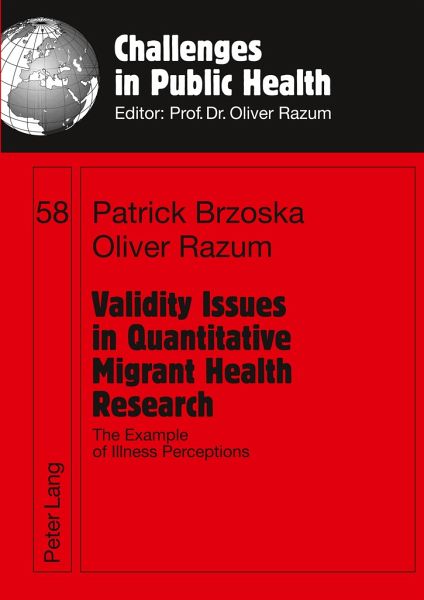
Validity Issues in Quantitative Migrant Health Research
The Example of Illness Perceptions
Versandkostenfrei!
Versandfertig in 6-10 Tagen
45,05 €
inkl. MwSt.

PAYBACK Punkte
0 °P sammeln!
Researchers studying the health of migrants frequently use standard quantitative instruments to assess psychological constructs. Such instruments are often validated only in the respective source population of migrants. For example, when studying Turkish migrants in Germany, instruments validated in Turkey are applied. However, considerable differences in culture and language may have developed between migrants and their source population. These differences limit the validity and reliability of quantitative instruments, a problem that is often overlooked. Using the example of the Revised Illne...
Researchers studying the health of migrants frequently use standard quantitative instruments to assess psychological constructs. Such instruments are often validated only in the respective source population of migrants. For example, when studying Turkish migrants in Germany, instruments validated in Turkey are applied. However, considerable differences in culture and language may have developed between migrants and their source population. These differences limit the validity and reliability of quantitative instruments, a problem that is often overlooked. Using the example of the Revised Illness Perception Questionnaire (IPQ-R), the authors demonstrate that instruments known to be valid and reliable in source populations may lead to biased results when applied to migrant populations.



